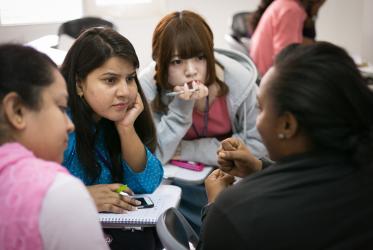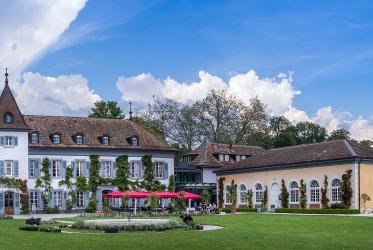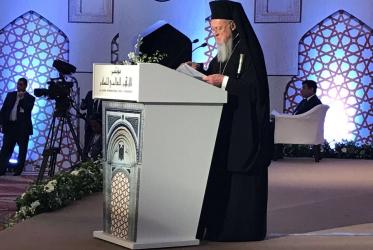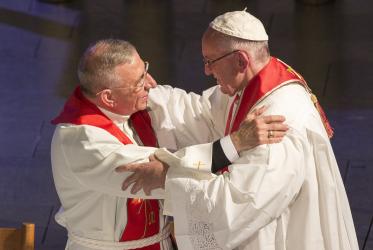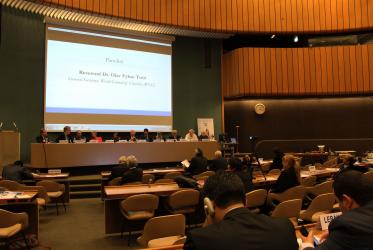Displaying 81 - 100 of 175
WCC students study what makes a peace communicator
18 July 2017
G20 summit: call to pray for peace in Hamburg
07 July 2017
‘Love is stronger than hate’
02 May 2017
Islam and Christianity: finding the common ground
16 March 2017
“What can we contribute as a worldwide fellowship?”
06 March 2017
WCC general secretary speaks on religion and discrimination
14 February 2017
Churches in Norway and Pakistan break new ecumenical ground
26 January 2017
Plans for 2017 decided by WCC Executive Committee
01 December 2016
What does ‘prudence’ mean for dialogue and peace-building?
16 November 2016
Grand Imam calls for collaboration against violence and poverty
06 October 2016
